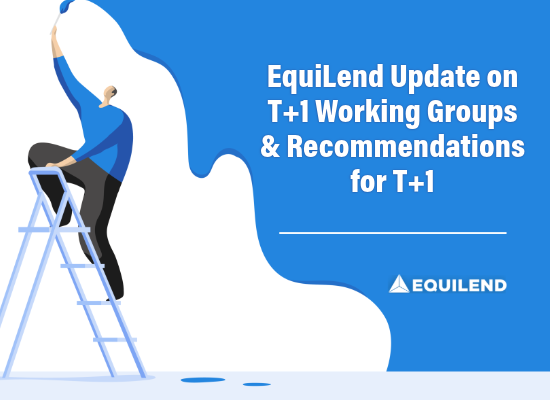Insight
April 2025
CJ EMSON
Getting SSI-Ready for T+1 in Europe: FMSB Recommendations for a Seamless Transition
As the countdown to T+1 settlement in Europe gains momentum, firms are under increasing pressure to optimize their post-trade operations—especially the accuracy and automation of Standard Settlement Instructions (SSIs). With settlement windows shrinking, even minor inefficiencies can lead to costly fails, regulatory penalties and reputational damage. We analyze the recommendations, the challenges and the opportunities below.
Recap
The Financial Markets Standards Board (FMSB) and Accelerated Settlement Taskforce (AST) and other Working Groups made up of industry participants, have collaborated to produce guidelines that address both legacy inefficiencies and emerging opportunities for seamless preparation ahead of the recommended move to T+1 in 2027 for the UK and Europe.
The UK Accelerated Settlement Taskforce published their initial recommendations for the smoothest transition to a T+1 Settlement regime in the UK in September, 2024, recommending automation of recalls by Q4 2026. The European industry taskforce followed with their recommendations, with both bodies broadly aligned in their principles.
The FMSB initially published their Draft of Standard Sharing of Standard Settlement Instructions in Q2 2024, setting out their Core Principles relevant to the sharing of Standard Settlement Instructions (SSIs). The proposed standards aim to increase the adoption of digitization for SSIs, facilitating the sharing and management of SSIs for more efficient STP processes which is relevant to T+1 adoption and will deliver benefits to the entire industry. The FMSB also recommend the automation of SSI management by Q4 2026 to aid the move to T+1 the following year.
Executing these dual recommendations on the same timeline presents a task as large as T+1 itself.
Market Reaction
Accurate SSIs are critical for post-trade execution. The complexities of the financial institutions involved in securities finance trades and the requirement to transfer of collateral, fees and other funding at speed, requires it. The recommendations from the FMSB highlight the need for automated solutions for SSIs, with our focus drawn to 5 of the 9 Core Principles:
Core Principle 1 – Use of Industry Platforms
Core Principle 2 – Off Platform
Core Principle 3 – Timing
Core Principle 4 – Data Fields
Core Principle 5 – Data Format
Core Principle 6 – Data Validation
Core Principle 7 – Validity
Core Principle 8 – Governance and Responsibility
Core Principle 9 – Periodic review
Core principles 1 and 3-5 comprise recommendations for greater utilization of industry vendor tech, the supply and validation of SSIs at onboarding, comprehensive SSI data supply including Legal Entity Identifier (LEI), standardisation of SSI formats and pre-matching of SSIs.
These 5 principles summarise the current issues with SSI supply, management and allocation:
- Lack of standardisation
- Low depth of data in SSI records
- SSI information being shared too late to be useful
- Slow uptake of innovative solutions that can resolve these issues
Fragmented Adoption
The largest barrier to SSI advancement to date is the lack of wide scale commited adoption to digitial transformation in SSIs; a change that would enforce standardisation and ensure consistency at scale. Challenges around operational transformation to improve visibility and oversight, change fatigue and integration complexity – not to mention shrinking budgets—have negatively impacted the progress towards standardisation and STP. Industry-wide benefits including interoperability and regulatory readiness, can only be realized when leveraged at scale.
Timing and Data Richness
Ensuring that SSI data is accurate and shared in a timely manner is the current industry aim, but manual processes create blockers and disrupt the process. Automating the collection, enrichment and management of SSI data—including real-time updates from custodians and counterparties—removes much of the manual intervention that contributes to SSI latency and inaccuracy, providing a solid foundation for fail mitigation. Daily validation with real-time SSI matching and validation, not only improves settlement success but drives efficiencies throughout the trade lifecycle.
Settlement Data Fields and Format
Even accurate SSIs are ineffective without clear agreement on the settlement location. Without confirmation of settlement location at point of trade, firms risk settlement failure in a T+1 world. SSI readiness must go hand-in-hand with workflow alignment and trade instruction clarity, in line with the core priniciples from the FMSB.
A key learning from accelerated settlement in North America was the increased importance of the settlement location data field. Accurate and complete SSI data, including settlement location, is crucial for both manual and automated SSI instructions. Not entering a settlement location delays instruction generation in automated SSI solutions and generates more manual steps for those not automated, compounding the risk of mismatched SSIs.
The demand for automated SSI solutions in North America, the UK and Europe emphasizes the need for standardized and complete data to facilitate efficient settlements in line with regulatory advancement.
At EquiLend, we’re already enabling this transformation through our Enhanced SSI Repository powered by SSImple—providing automated enrichment, validation, and system-to-system exchange of SSIs to reduce fails and increase settlement efficiency.
EquiLend and SSImple’s partnership is an example of the opportunities for improvement to the trade lifecycle which still exist. Our Enhanced SSI Repository and SSI management solution, supports enhanced SSI enrichment, storage and sharing, accepting SSI inputs directly from the custodian or buy-side client. Simplifying SSI management and sharing reduces latency in the trade lifecycle and paves the way for greater efficiencies in the sector.
William Daws, Global Lead, EquiLend Post Trade Client Engagement: “For many years SSIs have been discussed on industry forums as a problem that has not yet been fully solved for. We welcome the FMSB recommendations to drive system to system exchange of SSI information and to standardise the exchange of SSI data across the industry. The core principles already have great synergy with EquiLend’s, , SSI Repository, powered by SSImple.”
Bill Meenaghan, Founder and CEO, SSImple: “As the industry moves toward T+1 settlement, the FMSB’s focus on electronic SSI sharing in Core Principle 1 is crucial. SSImple supports this shift with an automated SSI repository that ensures accurate, timely, and standardized system-to-system exchange of SSIs.
Beyond simplifying electronic sharing, SSImple also eliminates the need for manual cash callbacks, streamlining processes and reducing inefficiencies. By reducing reliance on manual tasks, SSImple helps firms lower operational risks and costs in the medium to long term, aligning with the FMSB’s recommendations and preparing institutions for a more efficient and cost-effective T+1 settlement regime.’
You may also like:
EquiLend Update on the UK and European T+1 Reports and Recommendations
As a tech vendor servicing the securities finance sector with T+1 solutions,...
Read MoreThe Importance of Automating SSIs in a T+1 Environment
Enhancing efficiency in Securities Finance starts with automation to enable accuracy at...
Read More6 Months of Accelerated Settlement T+1 Webinar
our 6 months of Accelerated Settlement T+1 Webinar covered key findings from...
Read More



